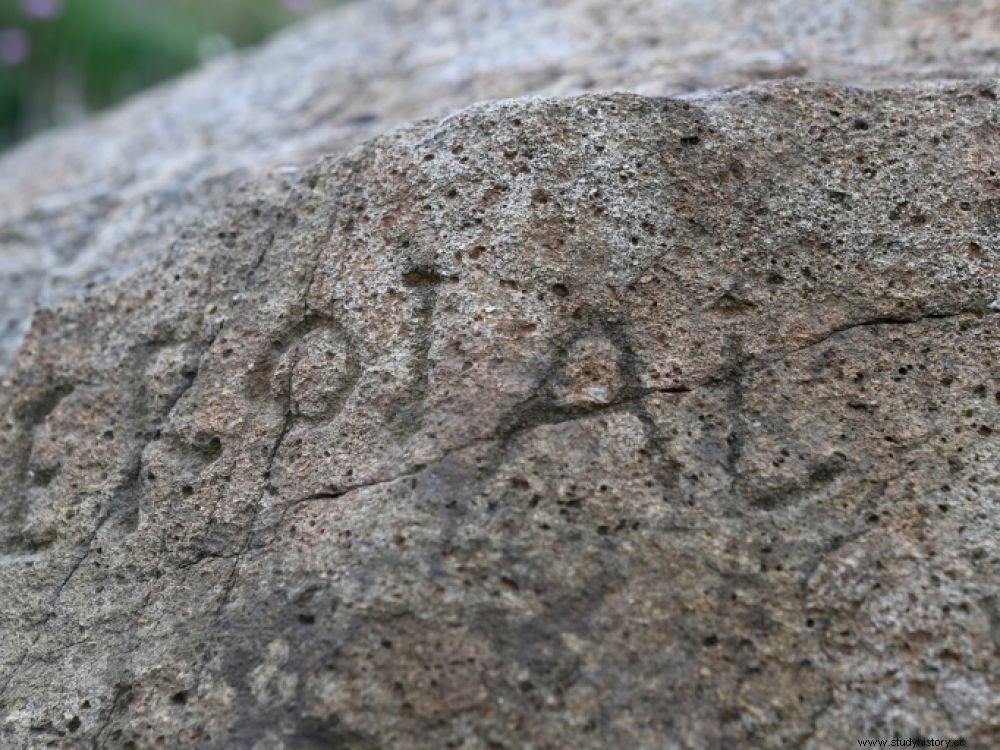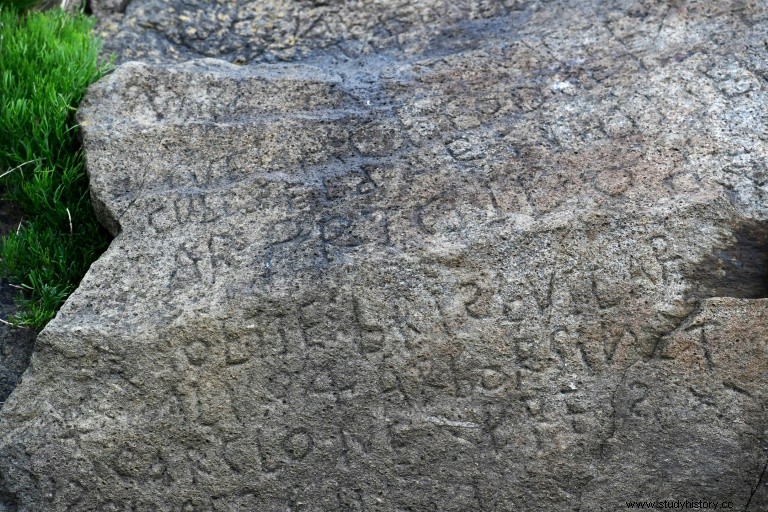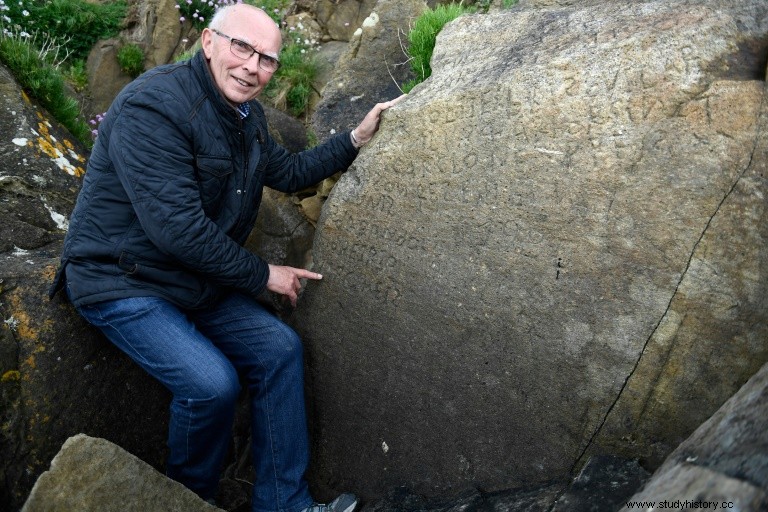Operation "The Mystery of Champollion". The municipality of Plougastel appeals to the public to understand the meaning of an inscription engraved on a rock and probably dating from the 18th century.

This mystery inscription is the subject of an appeal from the city of Plougastel-Daoulas, with the key 2000 euros, here on May 7, 2019.
Not far from the Pointe du Corbeau, on the Plougastel-Daoulas peninsula, in Finistère, a rock reveals an enigmatic inscription, probably dating from the 18th century. To remove the mystery of its meaning, the municipality launched a national appeal with a bonus of 2000 euros. "This inscription is a mystery and that's why we are making this call" , explains to AFP Véronique Martin, project manager for the small town at the origin of the operation "The Champollion mystery", named after the scientist considered to be the father of Egyptology, who first deciphered the hieroglyphs of the Rosetta Stone.

The mystery inscription is engraved on a rock visible only at low tide, in Plougastel-Daoulas, in Finistère (AFP/Fred TANNEAU).
Engraved letters and drawings
To reach the rock, which is only possible at low tide, you must first take a small path in the hamlet of Illien ar Gwenn, one of 182 in the town, then go up the strike towards the cove of Caro. The rock is then located between the point that juts out into the sea and the cliff. It is entirely engraved on one of its faces, mostly with capital letters, but also with drawings, including a sailboat with its mast and rudder.
There are also two dates, 1786 and 1787. "These dates roughly correspond to the years of construction of the various batteries that protected the harbor of Brest and in particular the fort of Corbeau which is located in the immediate vicinity" , says Véronique Martin.

The deputy mayor in charge of heritage Michel Paugam poses next to the mysterious inscription of Plougastel-Daoulas, May 7, 2019 (AFP/Fred TANNEAU).
Basque, old Breton?
"ROC AR B... DRE AR GRIO SE EVELOH AR VIRIONES BAOAVEL... R I" , or even "OBBIIE:BRISBVILAR... FROIK...AL" , next to a heart surmounted by a cross, can we read in particular on the imposing rock on the side of the cliff. "There are people who tell us that it is Basque (... ) others tell us it's old Breton, but we've never been able to decipher the text" , regrets the mayor of Plougastel-Daoulas Dominique Cap, interviewed by AFP.
The call, addressed to linguists, historians, academics, students or enthusiasts, will end on November 30. A jury will then meet to choose the most plausible proposal and award the prize. The contest rules are available from the town hall.
